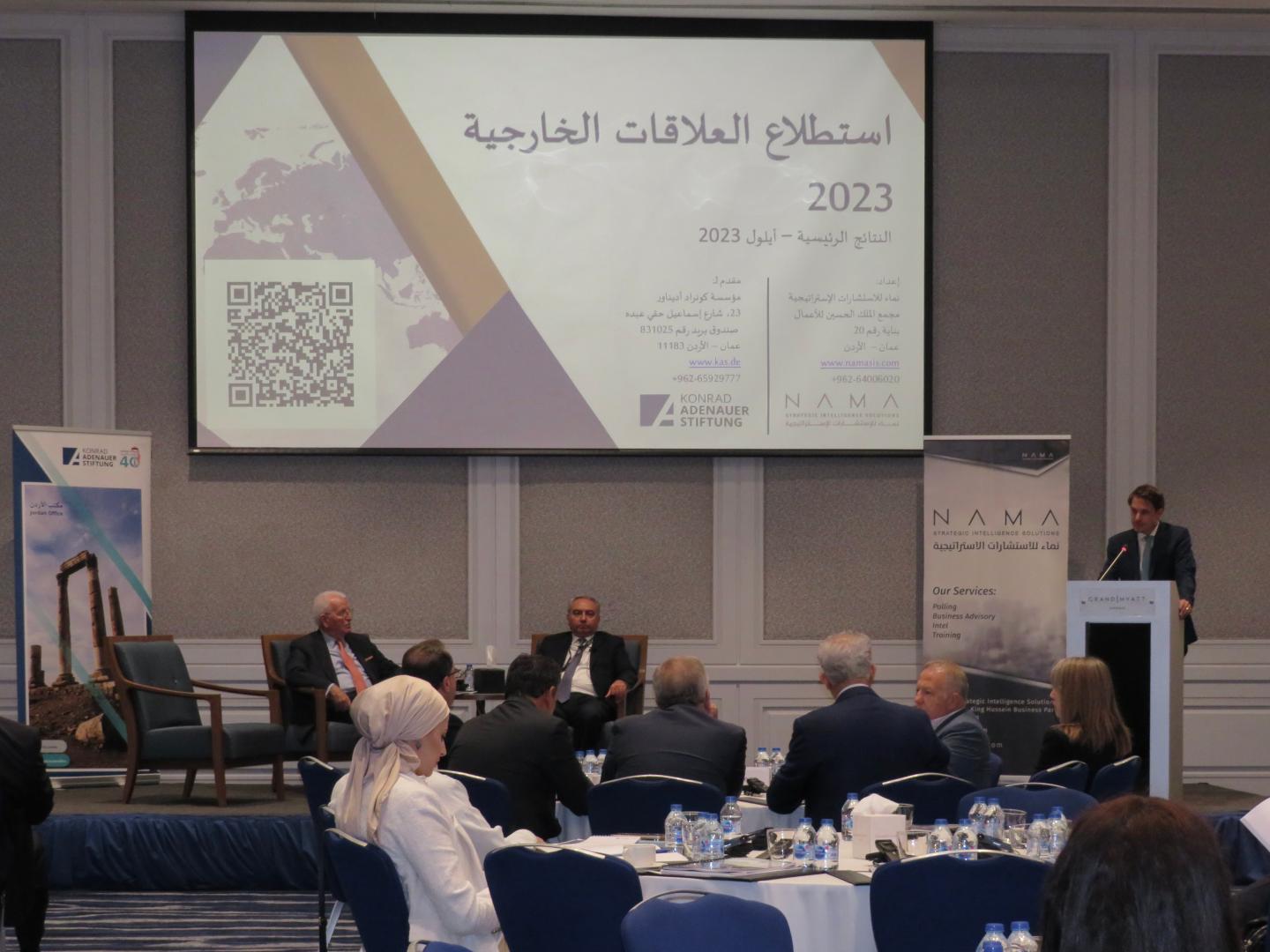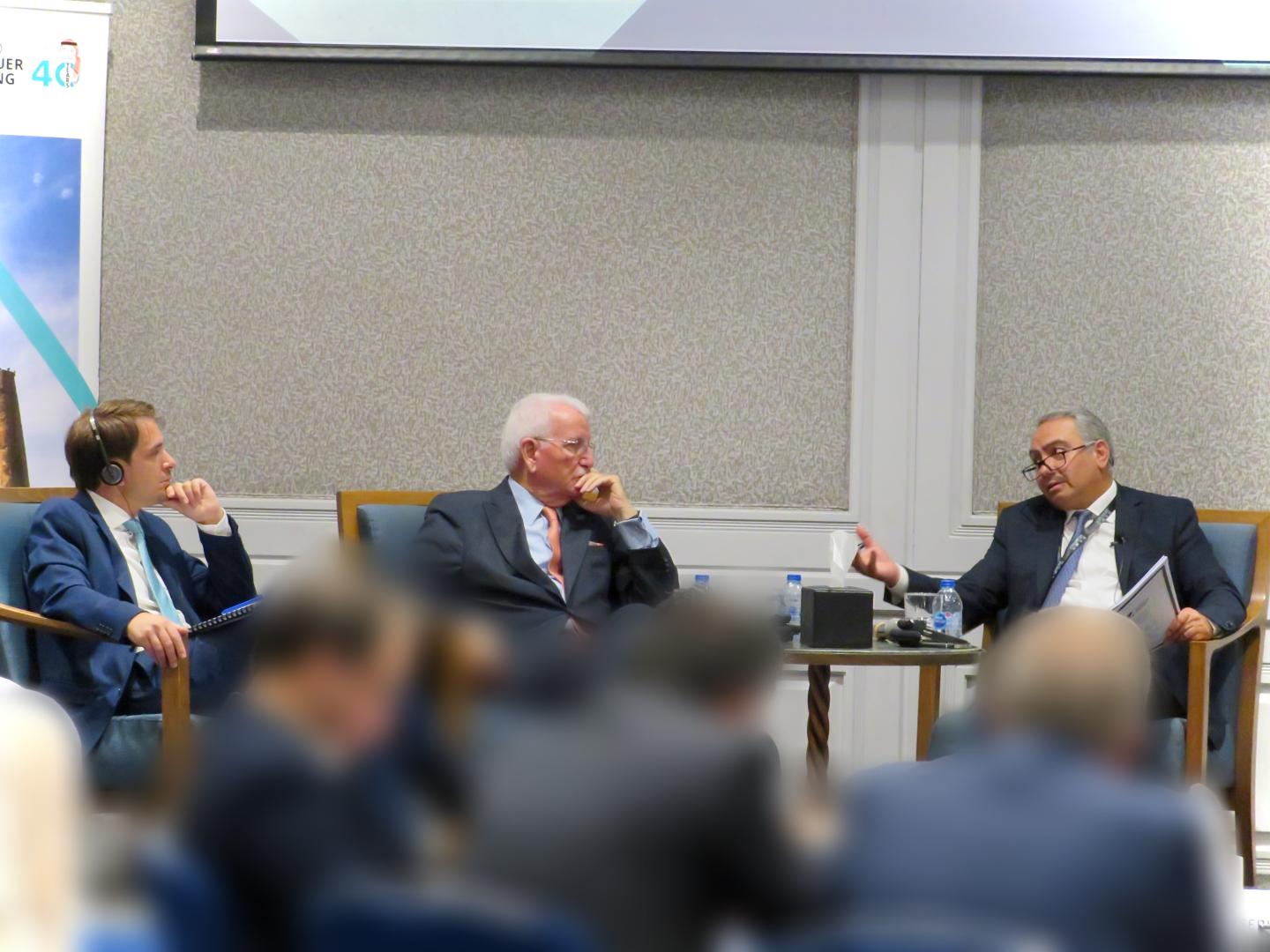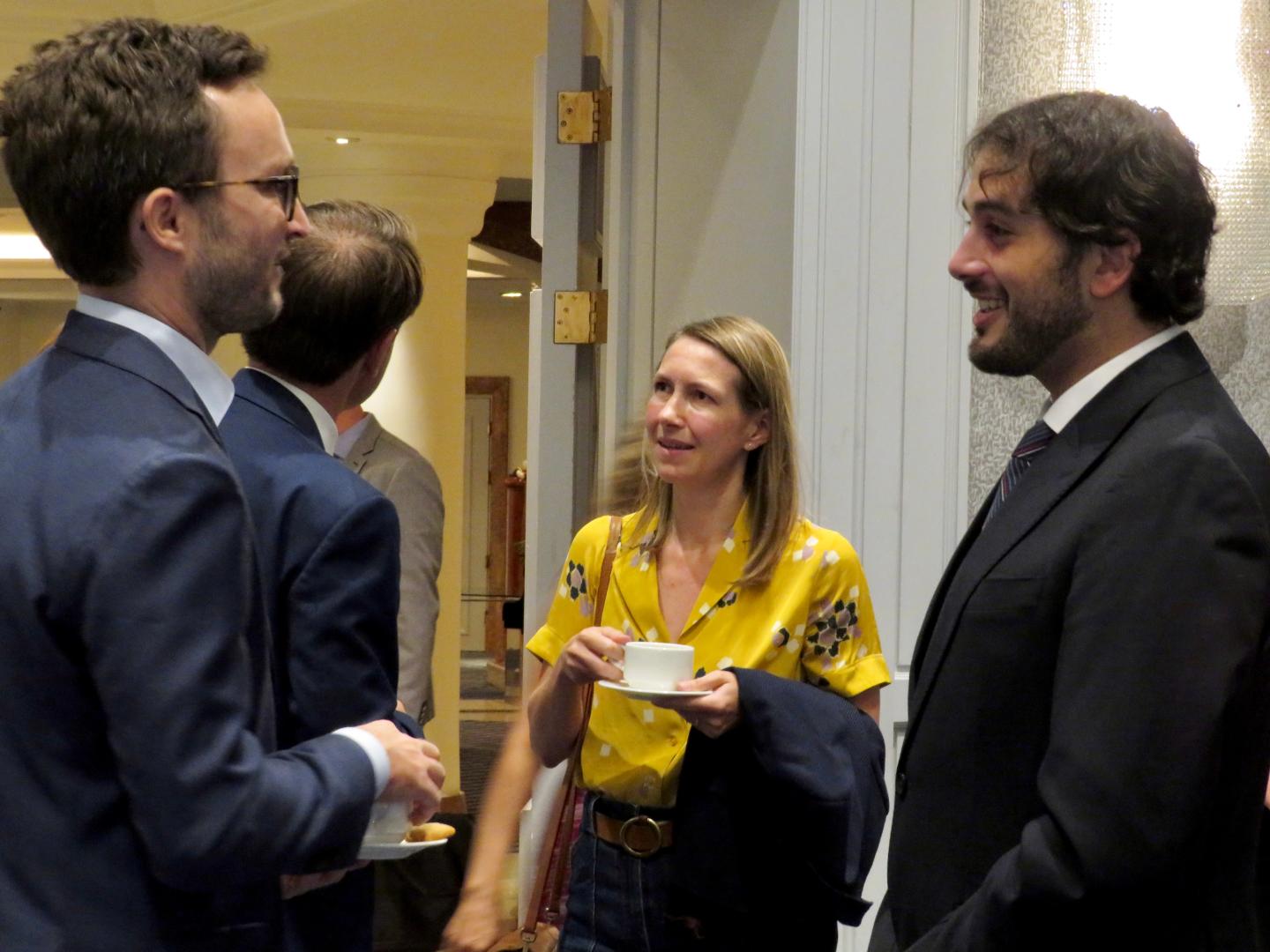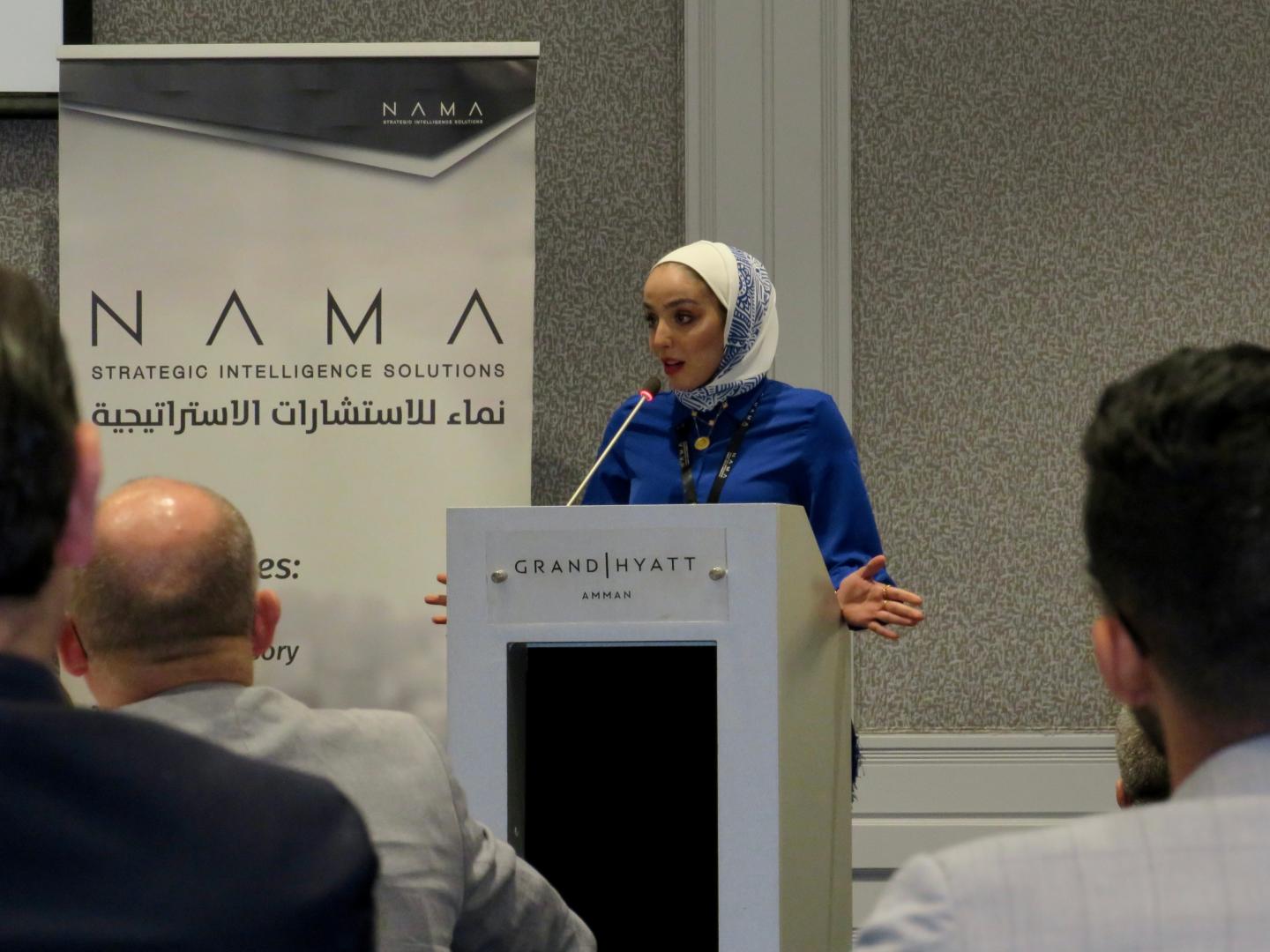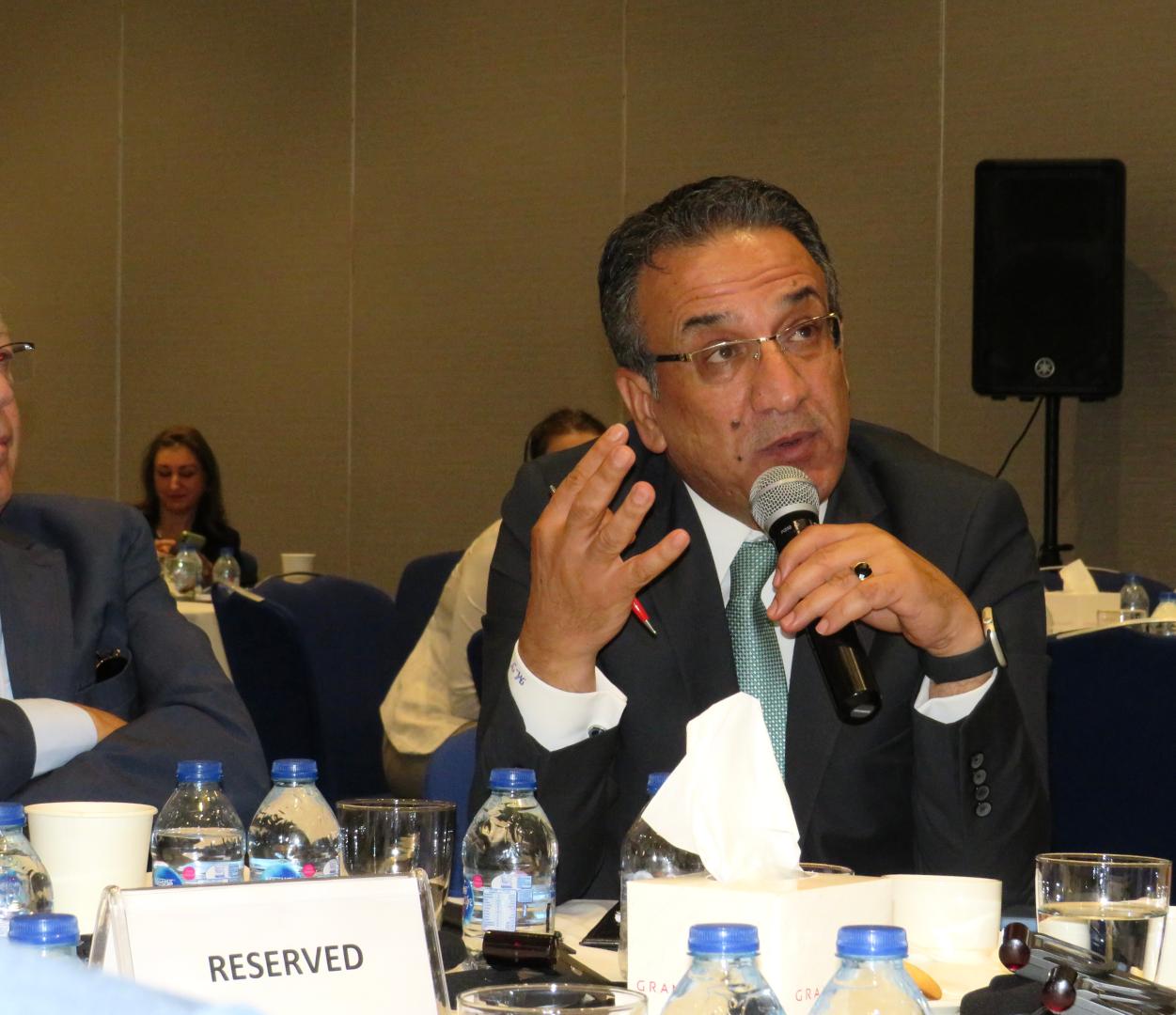Amman – September 21, 2023.
The fourth wave of the Foreign Relations Survey, conducted by NAMA Strategic Intelligence Solutions in partnership with Konrad-Adenauer-Stiftung (KAS) Jordan Office was launched today with over 70 high-ranking attendees.
The survey revealed that over 40 percent of Jordanians believe that Jordan’s most important foreign policy priority should be to facilitate agreements to develop the economy, attract investments, and create jobs. About 19 percent stated that Jordan should prioritize emphasizing its role in advocating for the rights of Palestinians and protecting the Holy Sites in Jerusalem. The chairman of NAMA, Dr. Fares Braizat, said that “Jordanian public opinion is largely aligned with Jordan’s foreign policy, except when it comes to Israel, Syria and Iran where the public is skeptical about the roles of these states in the region.” He added, “they are perceived as contributors to regional instabilities and threaten Jordan’s security.” “Jordanian public opinion has been consistent with its perception of the United States and the Kingdom of Saudi Arabia as close political allies and economic supporters of Jordan,” Braizat added. The survey, which was conducted over a nationally representative sample of 1,202 adult Jordanians, with a ±2.5% margin of error, interviewed face-to-face in August 2023, assessed the extent to which Jordanians believe the Government of Jordan is effective in fulfilling Jordan’s foreign policy objectives. Looking at the two most prioritized foreign policy objectives, 70.5 percent of Jordanians evaluated the Government as very effective in advancing Jordan’s role as a custodian of holy sites in Jerusalem and in defending the rights of the Palestinians, compared to 40 percent when it comes to attracting foreign investment and in acquiring economic support. When it comes to Jordan’s alliances, about 43 percent of Jordanians identified Saudi Arabia as Jordan’s closest political ally, followed by 27 percent for the United States. About 72 percent of Jordanians assessed the Jordanian Government’s political relations with these two states as “very good” and nearly a quarter described these relations as “somewhat good”. With the exception of Iran and Israel, the majority of Jordanians favored strengthening political relations with a variety of governments, including China (77 percent) and Russia (55 percent) although Jordanians do not find the latter two countries as appealing for education, health care, and professional training. Conversely, the United States was found to be most appealing for Jordanians for health care, university education, work, business and trade, tourism, and professional training. Meanwhile, China was found to be most appealing for shopping. The results also show that 41 percent of Jordanians identified the United States as Jordan’s most important economic supporter, followed by 35 percent who mentioned Saudi Arabia, and 7 percent for China. Further, 31 percent of Jordanians indicated that Jordan should cooperate more with Saudi Arabia in the future, compared to 17 who mentioned the United States and 9 percent for China. Looking at regional geopolitical dynamics, the survey finds that 54 percent of Jordanians view the Middle East as unstable and insecure, marking a decrease from 76 percent in the previous survey conducted in 2021. Over 45 percent of Jordanians indicated Israel is the region’s biggest security threat followed by 19 who indicated Iran. However, when it comes to Jordan’s biggest security threat, 49 percent of Jordanians indicated Israel, followed by 10 percent who mentioned Syria and 8 percent for Iran. The survey also revealed a stark difference in relation to Jordanians’ preferences for Jordan’s stance in international conflicts. 45 percent of Jordanians believe Jordan should side with the United States if it were to conflict with Russia, while 11 percent would like Jordan to side with the latter. In comparison with the previous survey in 2021, there is a 38-percentage point decrease among those who prefer Jordan to remain neutral. The same trends were found when asked how should Jordan align if the United States were to conflict with China. While 80 percent of Jordanians had preferred neutrality in the previous survey, only 37 opted for this stance, compared to 40 percent who would like Jordan to side with the United States and 20 percent who would like to see Jordan align with China.
The growing sense of polarization was seen clearly when it comes to Jordanians’ perceptions of normalizing relations with Bashar Al-Assad. The survey results show that 50 percent of Jordanians were opposed to the return of Al-Assad to the League of Arab States, compared to 42 percent who reported in favor. Nevertheless, 43 percent of Jordanians indicated that Jordan should not normalize relations with Al-Assad at all, while only 6 percent were in favor of unconditional normalization and 41 percent preferred the step-for-step cautious approach.
Overall, Jordanians’ expectations from the normalization of relations with Al-Assad were utilitarian in nature – divided into four camps: those who view it would reflect positively on Jordan’s economy, those who emphasized security in Jordan, Syria, and the region, those focused on the return of Syrian refugees, and those who maintained that there were no benefits to the normalization of relations or that it would have adverse economic and security consequences.
The survey can be found here.



